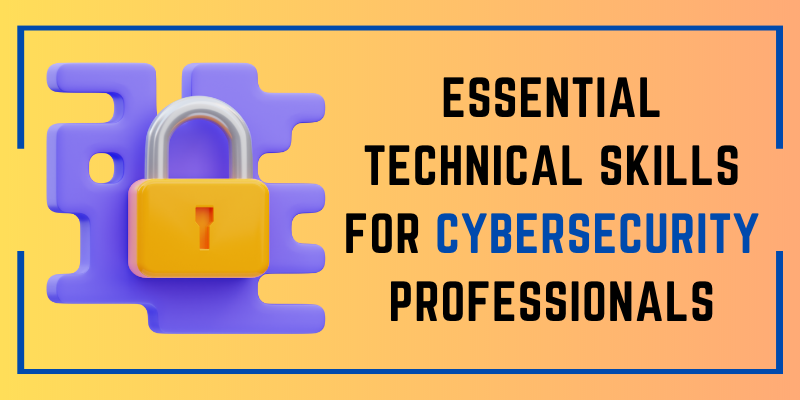
In today’s rapidly evolving digital landscape, the role of cybersecurity professionals has become paramount in protecting sensitive information and digital assets from myriad threats. A successful career in cybersecurity requires a solid foundation of technical skills that enable professionals to safeguard systems, detect vulnerabilities, and respond effectively to cyber incidents. This blog post delves into the essential technical skills that every cybersecurity professional should possess. Join Cyber Security Course In Coimbatore at FITA Academy to gain more skills and knowledge.
Cybersecurity Technical Skills
Scripting
Scripting is coding in which you tell a program what to do. The distinction is that coding is static, whereas scripts can move graphics and text around. Knowing how to make tools and automate repetitive work using programming languages such as Python or PowerShell allows you to evolve into a more efficient analyst. Python is one of the most widely used languages in cybersecurity. It’s also one of the most simple to learn.
Controls and Frameworks
A cybersecurity framework is a set of best practices, policies, tools, and security protocols to help secure an organization’s data and business activities. Control is how the company protects itself from vulnerabilities and attacks.
Your framework will differ depending on your organization and sector. You could find it helpful to become familiar with some of the most common cybersecurity frameworks, such as:
- National Institute of Standards and Technology (NIST)
- International Organization for Standardization (ISO)
- Center for Information Security (CIS)
- System and Organization Controls 2 (SOC 2)
Network Security Control
Many cybersecurity threats occur across a network of linked devices. The same technology that allows businesses to communicate can also lead to security vulnerabilities. To keep an organization secure, you must comprehend wired and wireless networks and how to connect them. Register in the Cyber Security Course In Madurai to avoid challenges and threats.
Operating Systems
Security threats exist on both computers and mobile devices throughout all operating systems. Develop an in-depth knowledge of MacOS, Windows, and Linux and their command-line interfaces to position yourself for success as a security analyst. You might also want to research the risks and vulnerabilities of mobile operating systems such as iOS and Android.
Security Architecture and Design
Creating secure system architectures is crucial to prevent and mitigate cyber threats. Cybersecurity professionals should understand security design principles, encryption, access control, and secure coding practices.
Intrusion Detection and Incident Response
Being able to detect unauthorized activities and respond swiftly to incidents is a core skill. Professionals should know how to use tools like intrusion detection systems (IDS) and conduct forensic analysis to trace and remediate security breaches.
Cryptography
A solid grasp of cryptographic techniques is necessary to secure data and communications. Professionals should understand encryption algorithms, digital signatures, and public-key infrastructure (PKI).
Secure Network Design
Designing secure networks is vital in preventing unauthorized access. Professionals must know how to segment networks, implement firewalls, and establish secure communication protocols. Enrolling in a Cyber Security Course In Hyderabad will help you achieve the necessary professional skills to follow a career in cybersecurity.
Web Application Security
Understanding common web vulnerabilities, such as cross-site scripting (XSS) and SQL injection, is critical for securing web applications. Proficiency in tools like Burp Suite and OWASP ZAP helps identify and mitigate these threats.
Cloud Security
As more businesses adopt cloud technologies, knowledge of securing cloud environments becomes essential. Cybersecurity professionals should understand cloud architecture, identity and access management (IAM), and cloud-specific security controls.
Mobile Security
Securing mobile devices With proliferation is paramount. Professionals should be well-versed in mobile device management (MDM), secure app development, and mobile threat detection.
Machine Learning and AI
Understanding the application of ML and AI in cybersecurity enables professionals to develop predictive threat models and automate incident response processes.
Having a wide range of technological capabilities in the changing cybersecurity industry is essential. To be effective in their jobs, cybersecurity experts must regularly upgrade their technical knowledge, whether protecting against sophisticated cyberattacks, conducting vulnerability assessments, or responding to security incidents. Cybersecurity experts may contribute to developing a safer digital environment for individuals and organizations by learning these crucial technological skills. Enrol in Cyber Security Course In Pondicherry to learn and impart knowledge about Cyber Security.
Also Read: Cyber Security Interview Questions and Answers